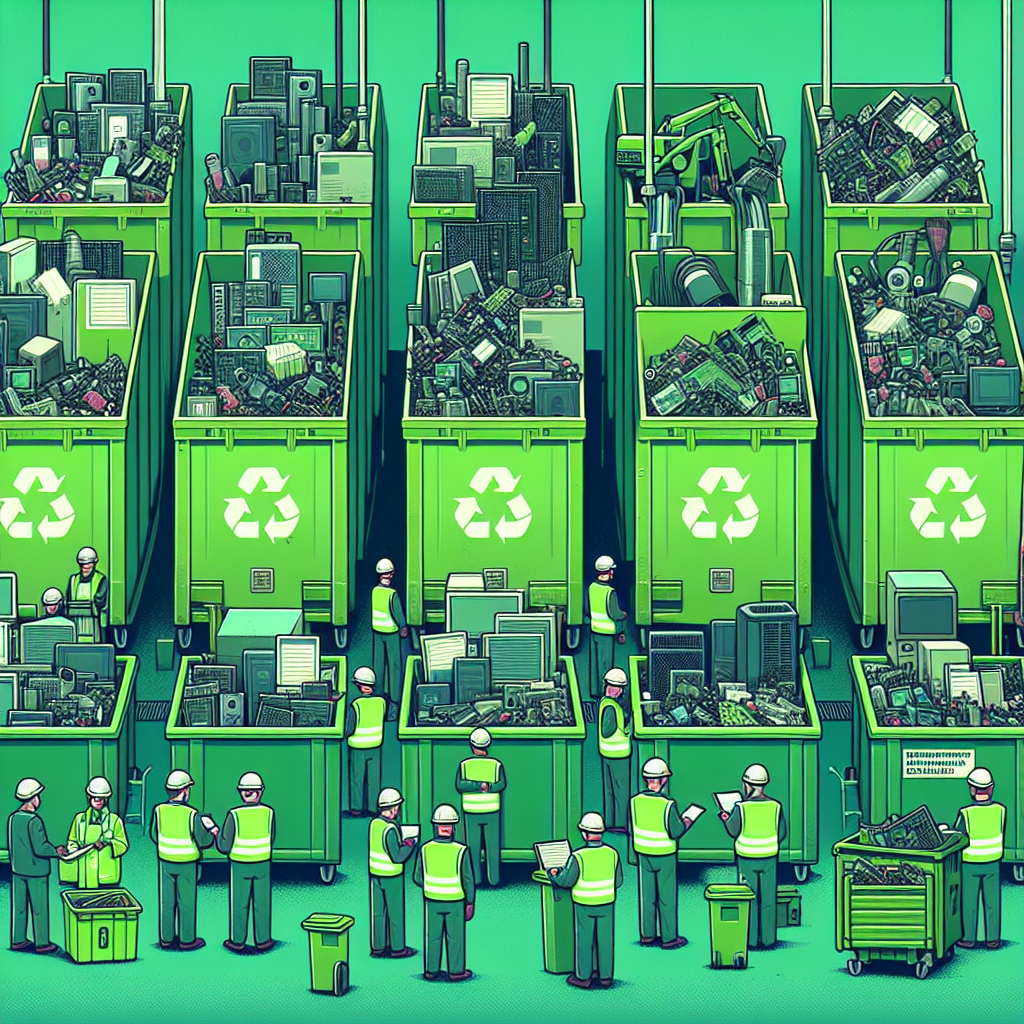Blog Ecobraz Eigre

Environmental licensing for electronics recyclers: what to check before hiring
Importance of Environmental Licensing for Electronics Recyclers
Environmental licensing is a fundamental procedure for electronics recyclers who wish to operate legally and sustainably. It ensures that recycling activities comply with environmental standards, avoiding damage to the environment and public health.
Essential Documents and Authorizations
Before hiring an electronics recycling service, it is crucial to check that the recycler has the necessary documents, such as the environmental license issued by the competent bodies, the Federal Technical Register (CTF) with IBAMA, and specific authorizations for handling and disposing of electronic waste.
Analysis of the Recycling Process
It is important that the process adopted for recycling is aligned with responsible environmental practices. Check that there are methods for proper disassembly, safe storage of toxic components such as batteries and chips, and that there are measures for the correct treatment of waste, minimizing contamination of soil and water.
Compliance with Current Legislation
Environmental legislation for electronic waste is strict and constantly being updated. Make sure that the recycler complies with laws such as the National Solid Waste Policy (PNRS) and other applicable state and municipal regulations, avoiding legal risks and negative environmental impacts.
Environmental Inspections and Surveys
Verify that the recycler regularly undergoes environmental inspections and surveys carried out by inspection bodies. These assessments are essential to ensure that the required environmental conditions are maintained and that any possible irregularities are corrected.
Post-consumer Responsibility and Final Disposal
A decisive point is to ensure that the recycler is committed to post-consumer responsibility, promoting the proper final disposal of waste that cannot be recycled, such as sending it to licensed landfills or to processes that guarantee recovery or safe disposal.
Certifications and Good Practices
In addition to environmental licensing, the existence of recognized certifications, such as ISO 14001, shows that efficient environmental management systems have been adopted. It's also a good idea to assess whether the recycler carries out environmental awareness programs and adopts practices that encourage the circular economy.
Technical Visit and Equipment Assessment
A technical visit can provide security when hiring. Evaluate the infrastructure and equipment used, ensuring that it is modern, efficient and minimizes environmental impacts in the electronics recycling process.
Transparency and Environmental Reports
Request periodic reports that prove the environmental management of the recycling process. Transparency in communication reinforces credibility and demonstrates commitment to the environment.
Conclusion
Before hiring an electronics recycler, carrying out a detailed analysis of the environmental licensing and practices adopted is fundamental to ensuring legal compliance and sustainability. This precaution contributes to environmental preservation and the strengthening of the circular economy in the electronics sector.

Deixe um comentário
O seu endereço de e-mail não será publicado. Campos obrigatórios são marcados com *